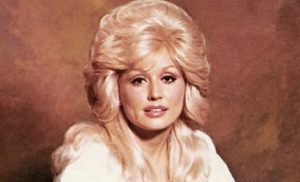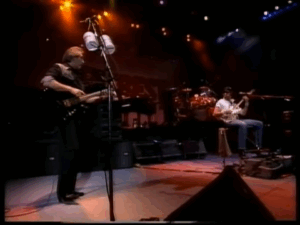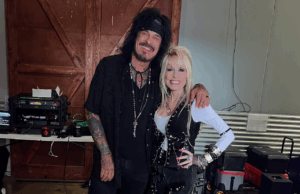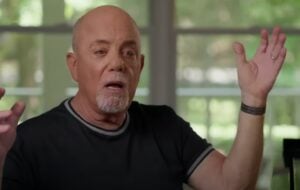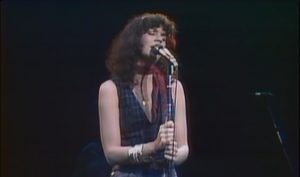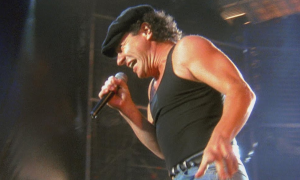Legitimate Reasons For Not Liking The Beatles
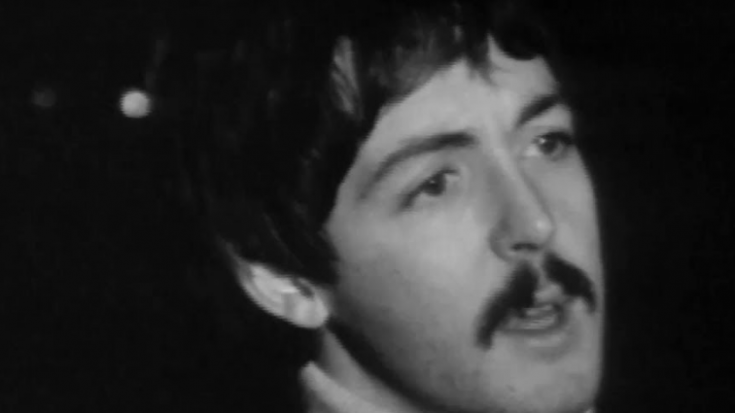
via HDBeatles / Youtube
It is okay to hate The Beatles. Let’s put it out there. Not liking the band doesn’t mean you do not recognize or respect their contributions to music. Besides, the influence of The Beatles is everywhere it’s hard to avoid seeing or hearing it.
Individual preferences in music are subjective. Feel free to enjoy whatever resonates with you. However, it’s important to uphold a sense of intelligence and respect by not undermining the achievements and the pivotal role that the Fab Four hold in shaping popular music and culture.
That being said, there are some really valid reasons to not like The Beatles. The points below are some of them:
They hated each other and even wrote songs about it
John Lennon himself was one of the most vocal about hating his own band. This hate was the reason The Beatles broke up, but the dislike had been brewing for a long time and the dissolution was just waiting to happen.
Paul McCartney had often quipped that his drumming skills surpassed Ringo’s, causing Ringo to temporarily depart the band during The White Album‘s creation. George Harrison initiated the unfortunate trend of musicians incorporating “world music” after travels to foreign nations. John Lennon was being his dicking self, even drawing a huge controversy about being “larger than Jesus” that hounded them on their US Tour, effectively ending their touring activities forever.
Though they have all largely settled the feud, the old bandmates still traded a few jabs here and there. But nothing’s better than all of that than the Fab Four writing songs about hating each other.
That is such a weird thing to have for a huge band, right? That they can also turn their loathing for each other into a performance art that the four of them played? They are just so amazingly talented that they can still produce massive hits despite being interpersonally dysfunctional.
But that’s just toxic. No wonder they all felt better as solo artists, each heaving great sighs that turned into beautiful music.
John Lennon was an insufferable jerk
There is indisputably a level of complexity to John Lennon’s character.
In his capacities as a musician, vocalist, and songwriter, he rightfully stands as one of the most prominent innovative figures of the 20th century. His contributions to The Beatles, his independent musical journey, and his endeavors to advocate for peace through inventive media occurrences all merged to solidify his status as a figure of historical significance.
Yet, as time has passed, the narrative surrounding Lennon’s life has been idealized to such an extent that distinguishing between the actual individual and the myth can prove to be a challenge. What remains certifiably accurate is that he was far from embodying a saintly persona.
In terms of his humanity, Lennon could be characterized, at best, as wounded and imperfect. On the opposite end, he displayed traits of being unfeeling, harsh, and even approaching a monstrous demeanor.
There have been accounts and stories about Lennon being abusive to women, especially to his former wife, Cynthia. He was also a serial philanderer, with Yoko Ono being his most popular affair.
In a 1981 Playboy interview, Lennon said “I used to be cruel to my woman, and physically… any woman. I was a hitter. I couldn’t express myself and I hit. I fought men and I hit women. That is why I am always on about peace, you see. It is the most violent people who go for love and peace.”
One of his biggest flaws that would probably not fly today is his homophobic tendencies. Lennon once beat a friend named Bob Wooler to an inch of his life after the latter joked about him spending a “honeymoon” with The Beatles’ manager Brian Epstein.
Lennon would later explain: “He called me a queer, so I battered his bloody ribs in.”
They pioneered fan power
If you have a hard time understanding people going crazy for bands, like what K-pop fans do for their favorite groups, it all started with The Beatles.
The Fab Four helped spark youth culture by firmly establishing a sense of generational awareness. Part of their counterculture contributions was helping the young realize their power and the success of The Beatles and Beatlemania evolved into a means of expressing dissent against the world of adults.
Derek Taylor, the band’s press officer, deemed the bond between the Beatles and their fans as the greatest romance of the 20th century. This Beatlemania effect lasted for quite a while and the subsequent bands who gained some following after The Fab Four used the same suffix, such as Bolanmania (for the fans of T-Rex, the glam-rock band led by Marc Bolan) and Rollermania (for the fans of Scottish pop rock band Bay City Rollers).
This will continue to be a cultural phenomenon until the 21st century, with artists such as Justin Bieber, One Direction, and BTS, having their own “sea of screaming girls”. But this attachment had sometimes devolved into an obsession, particularly in Asia.
A subset of overly enthusiastic fans have taken their passion to excessive lengths: They engage in stalking their idols, obtain personal travel details, surveil their phones, sneak into hotel rooms, and even resort to hiding under beds. These fervent admirers are referred to as “sasaeng fans” in South Korea.
There were even instances of kidnapping and assault. Yikes.
Other musicians hated them
There can be tons of reasons why other musicians might hate The Beatles, despite them influencing several of the other big bands that came out decades after them. Jealousy is one of them, of course, but some have their own peculiar points.
They were the biggest band of their time, But The Beatles couldn’t win everyone over, including their own idol, Elvis Presley.
During their formative years, The Beatles held Elvis in high regard, making his subsequent treatment of them all the more painful. The group had the opportunity to meet Elvis in 1965, and although he was amiable, it’s worth noting that he had reservations about the meeting. However, things took a different turn five years down the line.
In a 1970 encounter with Richard Nixon, Elvis expressed a markedly altered opinion about The Beatles, deeming them profoundly and “dangerously un-American”. It’s worth noting that by this juncture, the band had already publicized their decision to disband.
Other artists who publicly expressed their dislike for The Beatles include Lou Reed of Velvet Underground, Julian Casablancas of The Strokes, Trent Reznor of Nine Inch Nails, Pete Townshend of The Who, and even influential producer Quincy Jones.
Fellow legendary rockers The Who was a band from their era, but Townshend himself can’t see the Beatles as musicians. The guitarist liked the Fab Four as individual people, but he couldn’t “dig very deep” with most of the band’s work.
“I’ve always said that I’ve never been a big fan of the Beatles: to me, rock was the Stones, and before that Chuck Berry, and before that, maybe a few people who lived in fields in Louisiana. But I can’t really include the Beatles in that. The Beatles were over with Herman’s Hermits. That’s not rock & roll. I was always very confused about the American attitude of thinking that the Beatles were rock & roll. Because they were such a big pop phenomenon. I’ve always enjoyed some of their stuff as light music, with occasional masterpieces thrown in. But with a lot of their things, you can’t dig very deep.”




